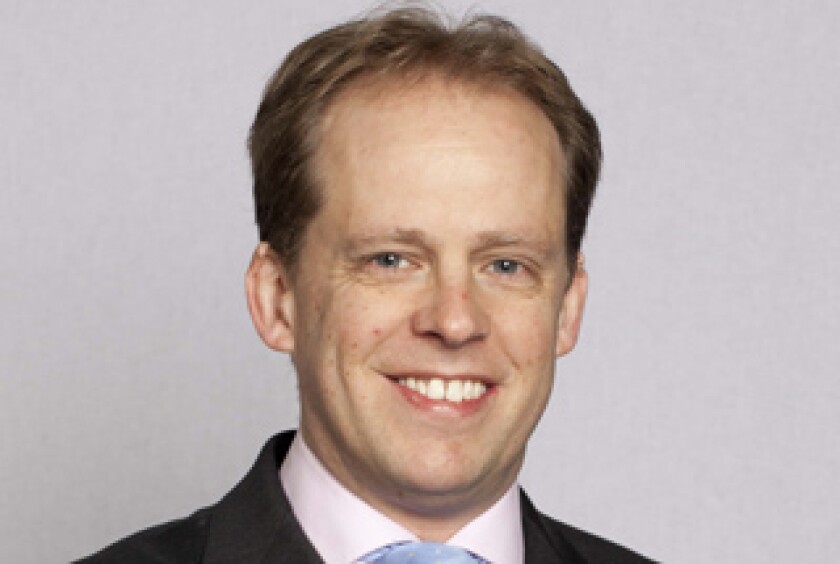International Tax Review (ITR): Describe the tax department at APM Terminals. How many people are involved and how does it operate?
Steven Ouwerkerk (SO): The tax department was set up five years ago and now consists of three tax people (including the global head of treasury & tax), all residing in The Hague. The tax department has global responsibility for all tax matters. We operate by being part of the business. This means that we need to understand how we invest and what the issues and challenges of various departments are. Especially with APM Terminals continuing to invest selectively in new projects, particularly in high growth markets.
ITR: How closely do you interact with the CFO and board members?
SO: Relatively closely. There is at least a monthly meeting with the CFO to discuss the business, but more importantly, there is a trustworthy relationship. Having such a relationship is key for being successful as a tax department.
Our mission statement is to go from corporate support to business partner to part of the business, and this is all linked to interacting with other functions. Some tax people prefer to stay low, but I am more of a stick-your-head-above-the-parapets kind of guy. You have to use common sense to think about how you are going to position yourself, and for me it is important that the tax department has continuous interaction with other sections of the business, from procurement to operations and project engineering. Tax should be a core element in all business decisions, rather than being a bystander. National authorities are seeking more revenue right now, and you must remember that decisions are about business risk, not just pure tax risk.
ITR: Can you elaborate on your relationship with the CFO a bit more – what do each of you want from the other and how do you keep them happy?
SO: We set our priorities and goals at the beginning of the year and during the year we keep up the dialogue. The CFO wants to be sure that we keep focussing on what is important for the company and that we are transparent. On top of that, we need to ensure that we anticipate the changing environment, that we deal with issues coming our way and that we solve them. To be able to do that, the CFO needs to give full support to the tax department and give the freedom to operate the way deemed best by the global head of treasury & tax and that is the case for APM Terminals.
ITR: Which parts of the tax function and processes do you handle in-house and which do you prefer to outsource to external advisers?
SO: We use advisers to a large extent for investments, acquisitions and disposals. The set-up is that advisers do most of the work in the beginning, but we manage them. Thereafter dialogue and brainstorming starts to fine-tune the process and to ensure all angles are covered. It is crucial that advisers deliver the right quality and think along the values and principles of APM Terminals as the global head of treasury & tax is ultimately responsible.
ITR: How often do you change the advisers that you use?
SO: We don’t really. We use all global advisers as we do not believe we should use only one adviser. There is no ‘one-size-fits-all’. Per project we decide which adviser is best and most suitable.
ITR: When building an in-house tax team, what are the qualities you look for?
SO: A tax manager should be able to deal with the pressure caused by the many projects. On top of that, as we are a very small tax team, one should be able to cover all angles, from tax accounting to transfer pricing, from interpretation of local tax law to understanding the business processes and being able to build bridges.
The key is that a tax manager understands the company’s vision and strategy as well as functional priorities of the various departments and their concerns, risks, opportunities and challenges. This means that you have to be diversified, social, humble, upright, technically very capable, but at the same time pragmatic, being able to think divergently and being able to link various information streams to identify risks, issues and solutions.
ITR: What keeps you up at night?
SO: With the diversity of our work and the company’s growth ambition it is tough to keep an overview of all tax related transactions, simply because tax is everywhere, especially in our business. Sometimes it feels we are missing something, but we cannot put our finger on it. That is what is keeping me up at night, because my gut feeling is often right. Then ‘divergent thinking’ starts to identify the missing item.
ITR: What are the risks faced by the tax department and how are these mitigated?
SO: With APM Terminals building and operating terminals in a global environment, we face many risks. Sometimes caused by the unknown, sometimes due to the changing global environment. We try to mitigate them by continuously having dialogue with all stakeholders, thinking through the cases at hand and thinking divergent. There is simply no room for assumptions.
Profile: Steven Ouwerkerk |
|
|---|---|

|
Steven was born on February 15 1974 in The Netherlands. He is married with two children (one boy, one girl), and lives in the Voorburg suburb of The Hague. He studied tax law at the University of Leiden, specialising in international tax law. He started his career in taxation at Arthur Andersen in 1999, as part of the department responsible for international tax structuring, including M&A, for large multinationals. Steven made the decision to become an in-house tax manager in 2005, taking on the role of tax manager at telecommunications company, Orange. He has been working for APM Terminals since June 2009, and was attracted to becoming the first tax specialist at the company due to the nature of its activities, the company’s values and aspirations, as well as a desire to build his own team up from scratch. Since then the tax department has grown significantly. Advisers praise Steven for the strength and core values of his tax team. |
This is the first of a two-part interview. Look out for part two next week.










